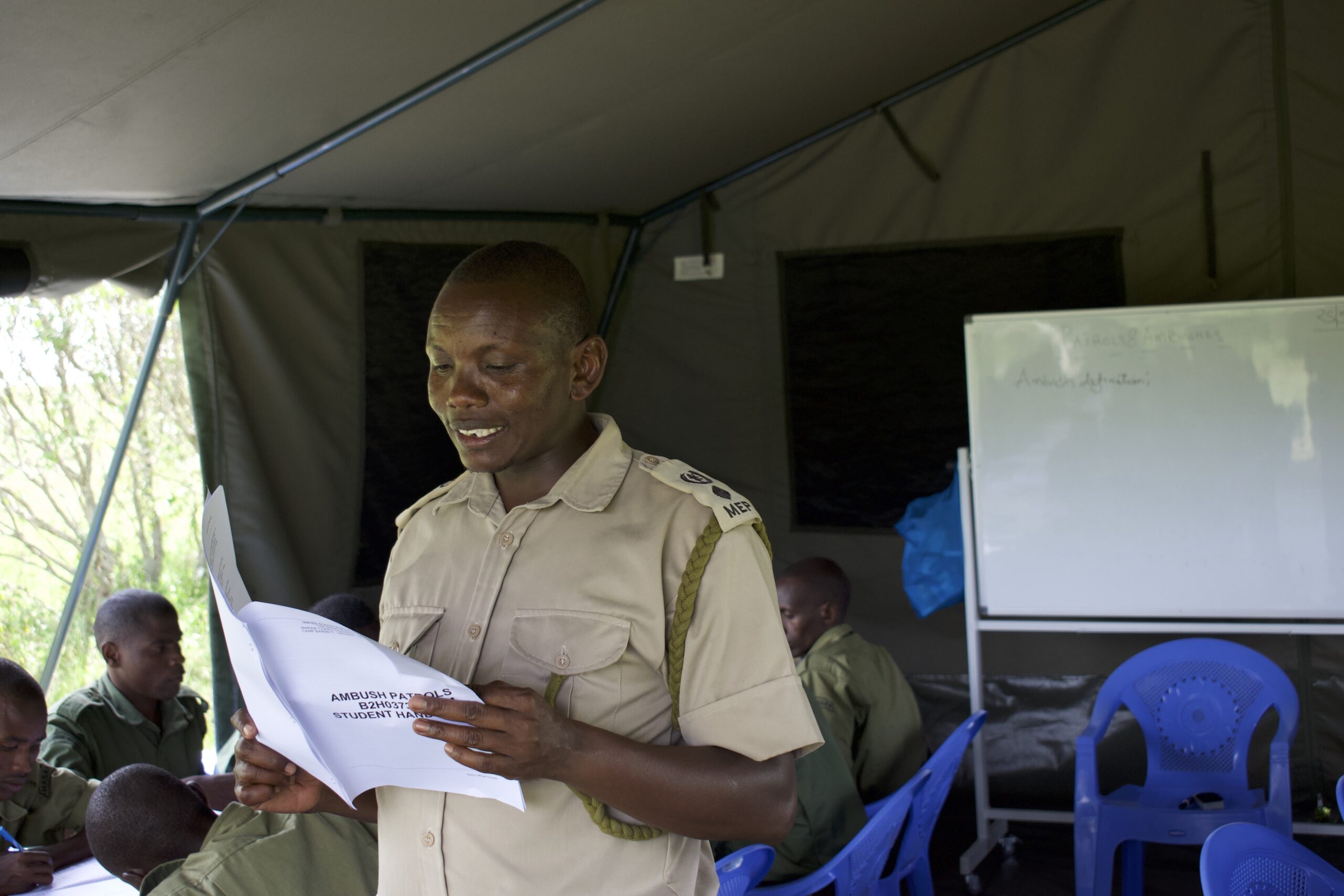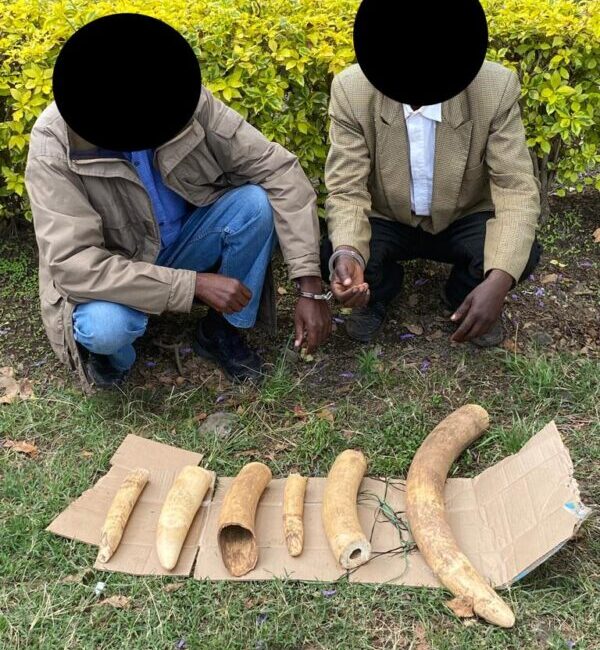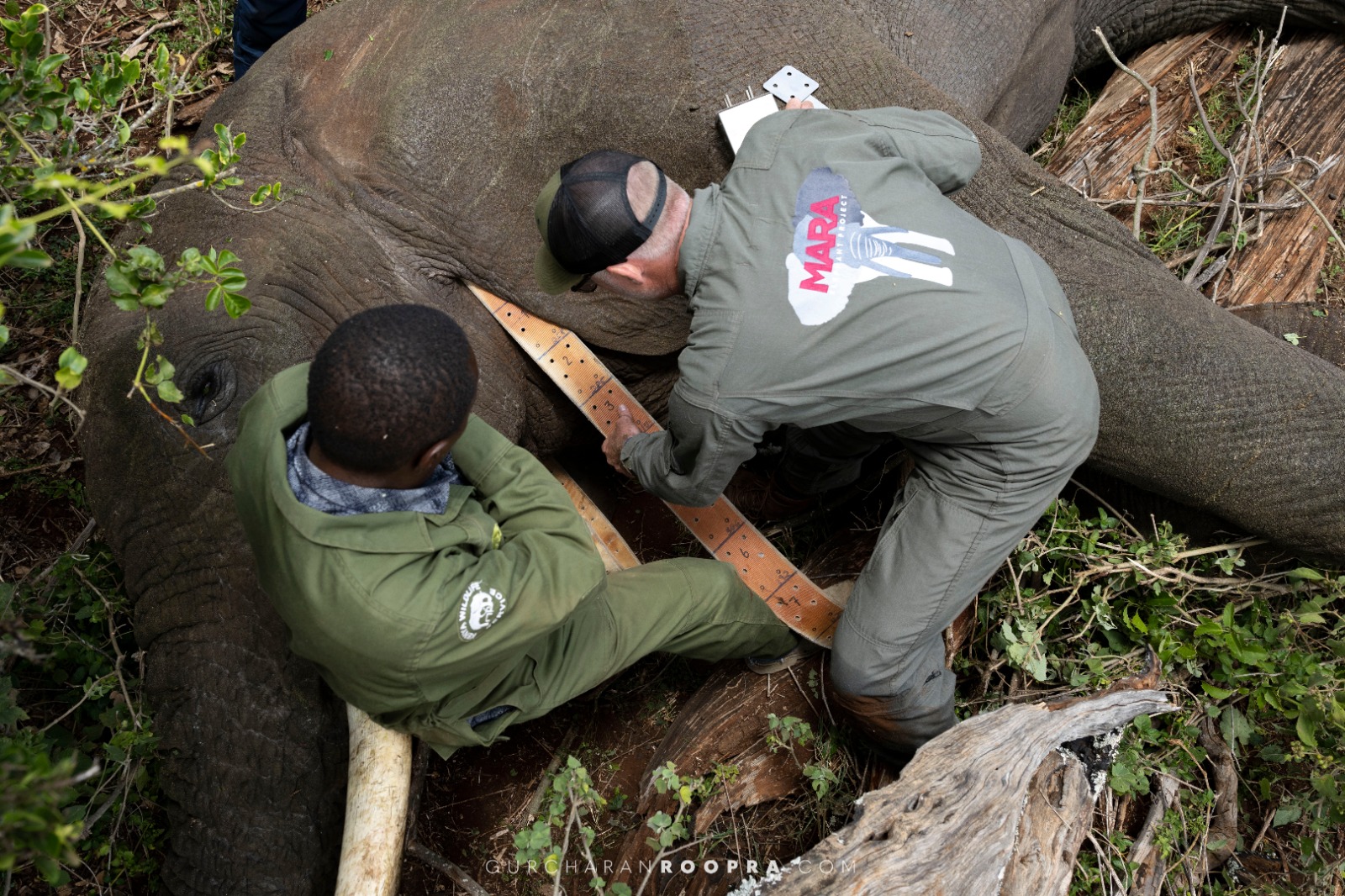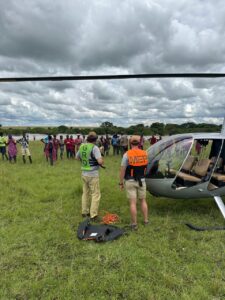 The seven new Mara Elephant Project recruits from Mosiro have arrived at headquarters to begin their six-week basic tactical introduction training course. Over the last decade, MEP has developed core packages for the basic requirements of a ranger in our ecosystem which include Standard Operating Procedures, Patrol Medic, Fitness, Navigation, Communications, Data Recording, Asset Use, Laws and Wildlife Act, Drill and Discipline, and Field Crafts. MEP has opened our training to strategic partners in the ecosystem to provide bespoke training to enhance safe and effective deployment of rangers.
The seven new Mara Elephant Project recruits from Mosiro have arrived at headquarters to begin their six-week basic tactical introduction training course. Over the last decade, MEP has developed core packages for the basic requirements of a ranger in our ecosystem which include Standard Operating Procedures, Patrol Medic, Fitness, Navigation, Communications, Data Recording, Asset Use, Laws and Wildlife Act, Drill and Discipline, and Field Crafts. MEP has opened our training to strategic partners in the ecosystem to provide bespoke training to enhance safe and effective deployment of rangers.
 Kenya Wildlife Service (KWS) arrested a total of five suspects and confiscated 21.7 kg of ivory in three separate busts in March all based on MEP intelligence.
Kenya Wildlife Service (KWS) arrested a total of five suspects and confiscated 21.7 kg of ivory in three separate busts in March all based on MEP intelligence.
The MEP “Charlie” and “Alpha” Sheldrick Wildlife Trust (SWT) Mau De-Snaring Units were busy in March continuing their protection efforts in the Mau Forest alongside KWS and Kenya Forest Service (KFS). The MEP “Echo” ranger team is stationed in the Loita Forest to increase protection for the forest and the wildlife that call it home. During the last week of March, alongside KWS and KFS, they successfully arrested four suspects cutting down red cedar and olive trees for timber. During the bust, they confiscated a power saw, recorded the serial number and turned it over to police
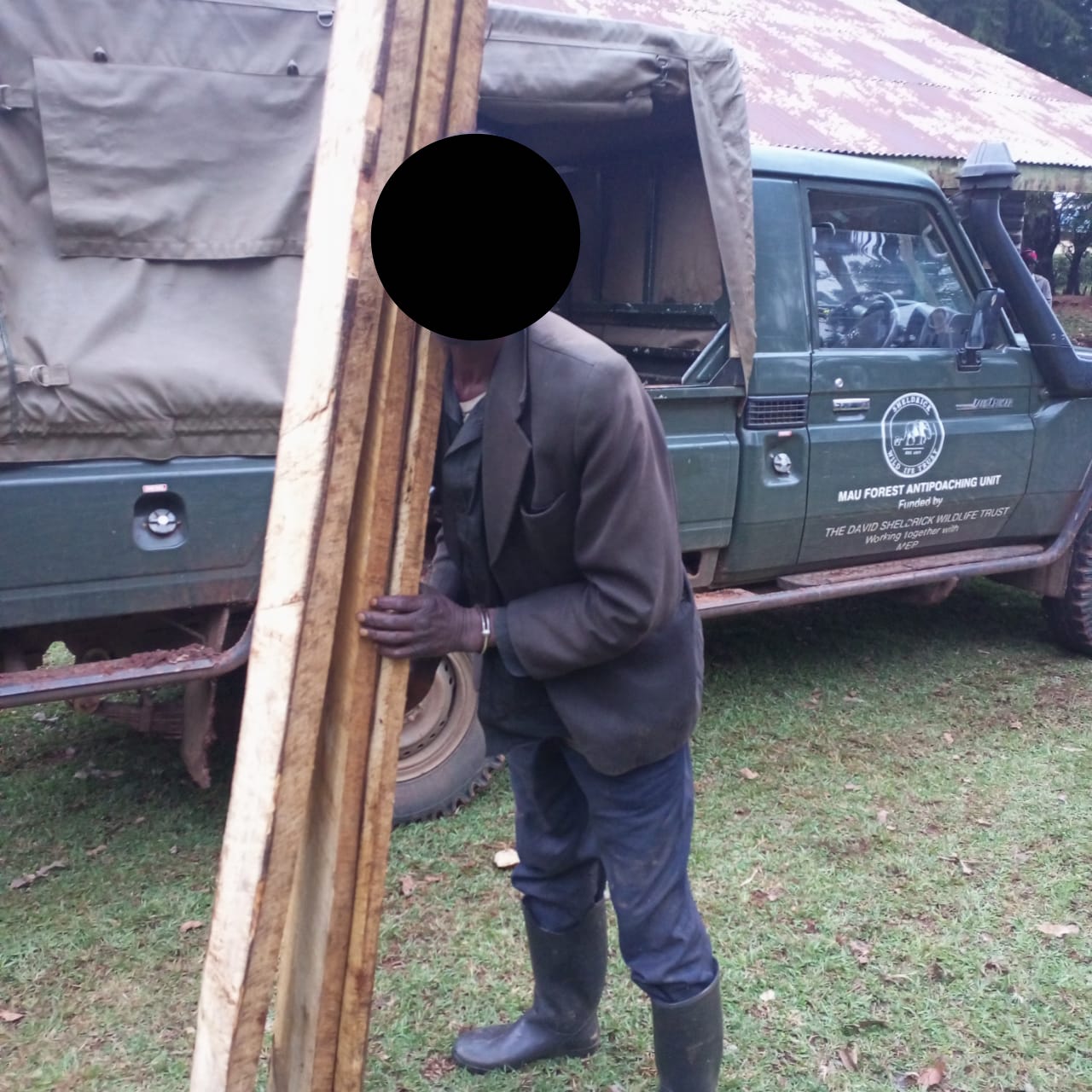
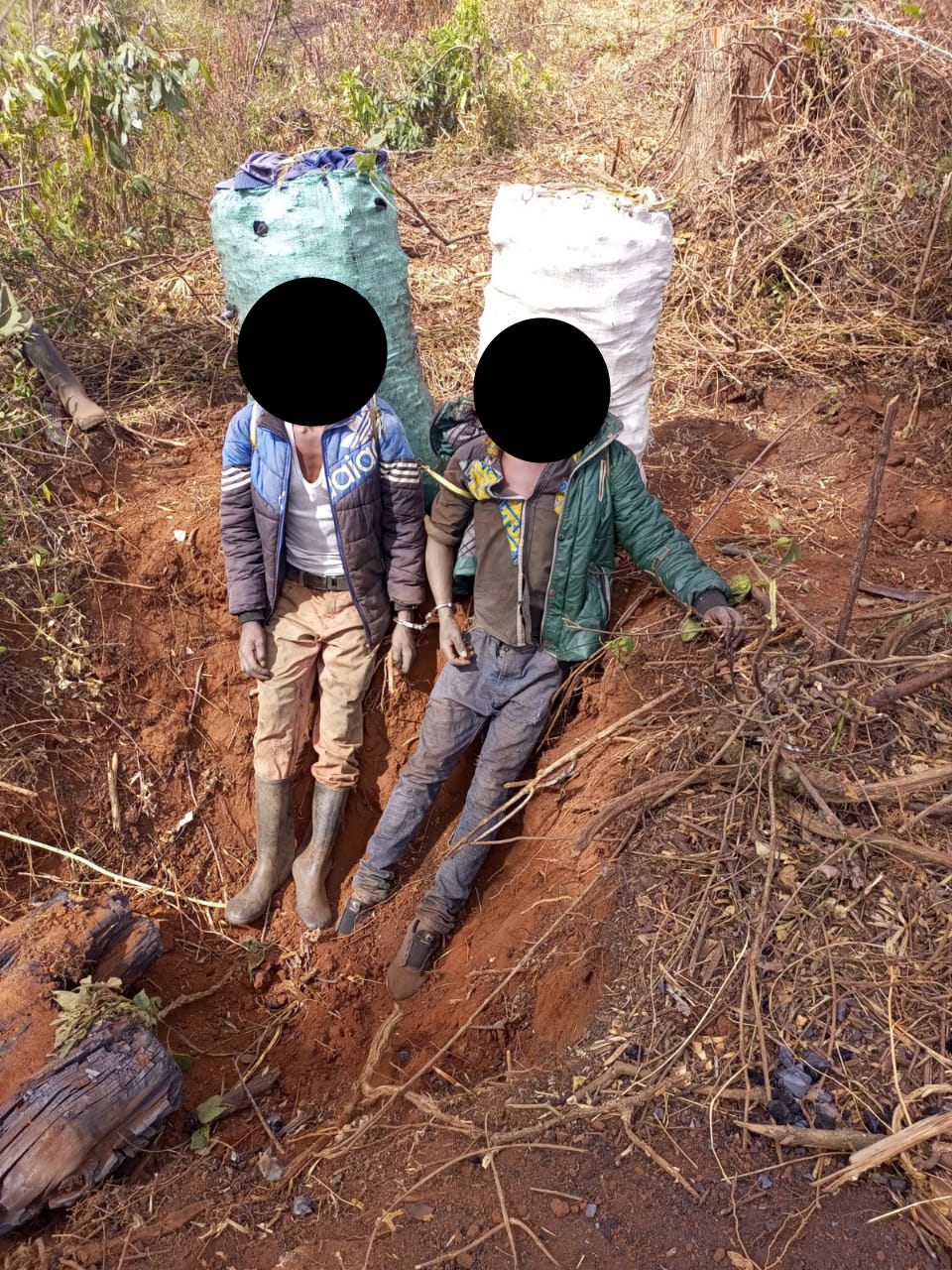
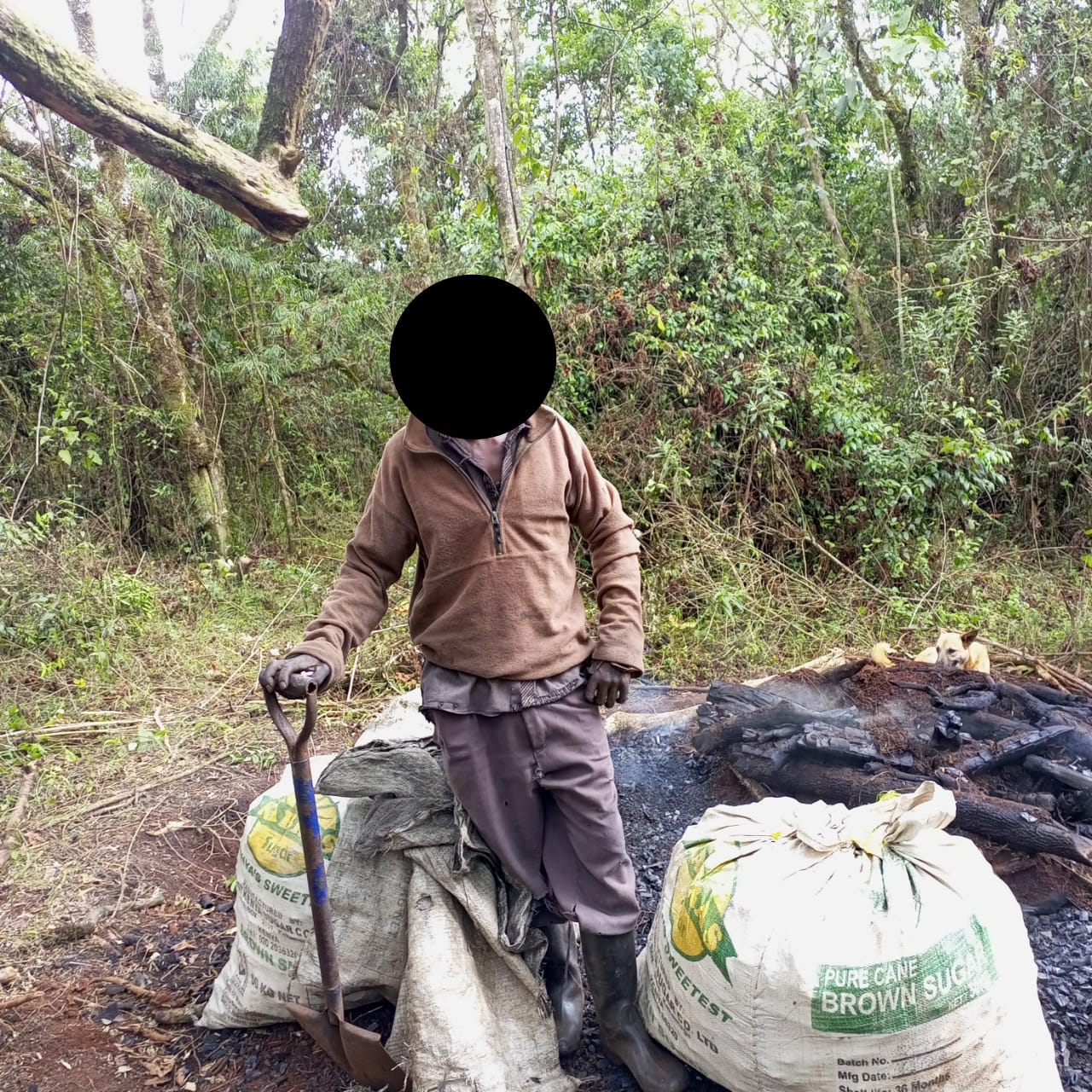
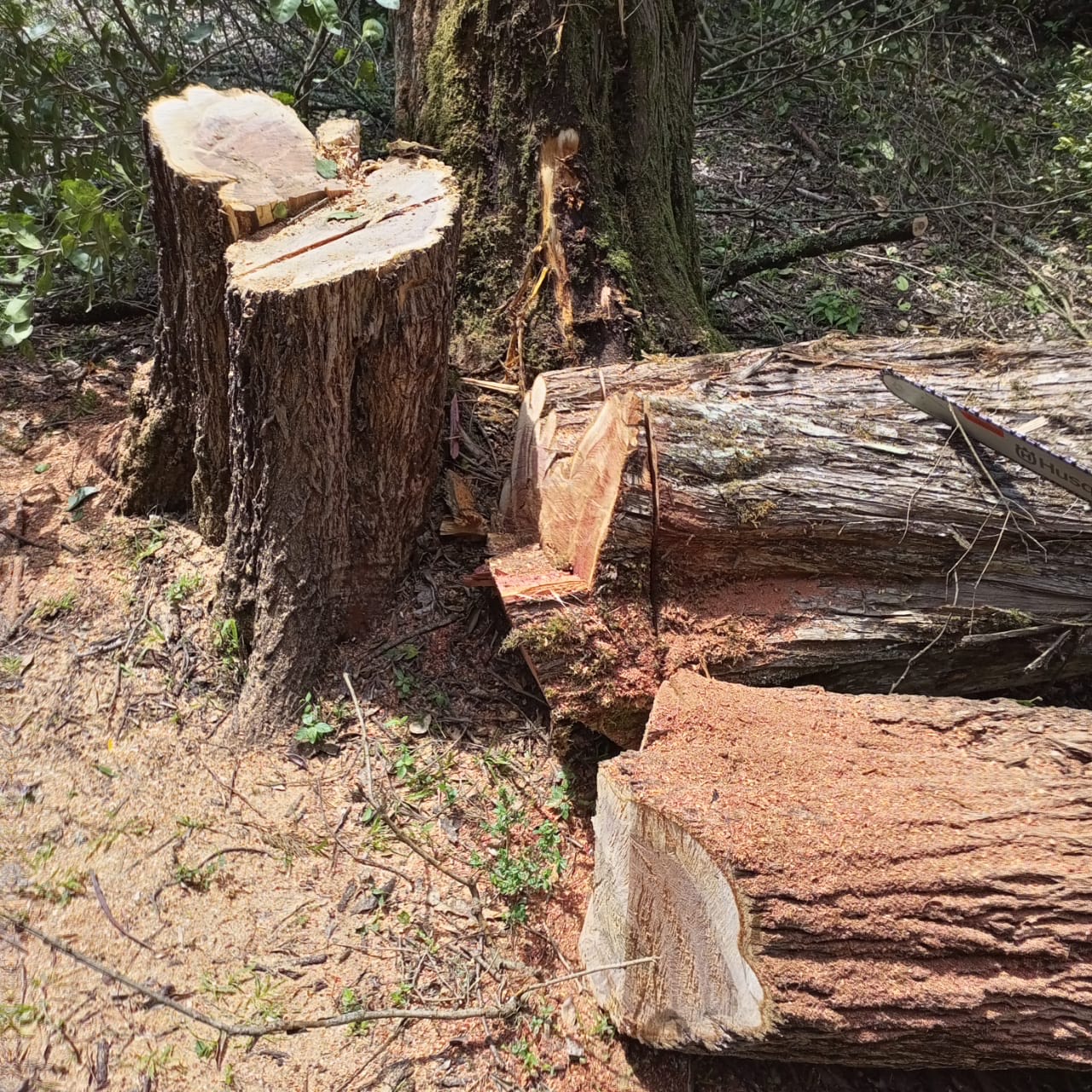
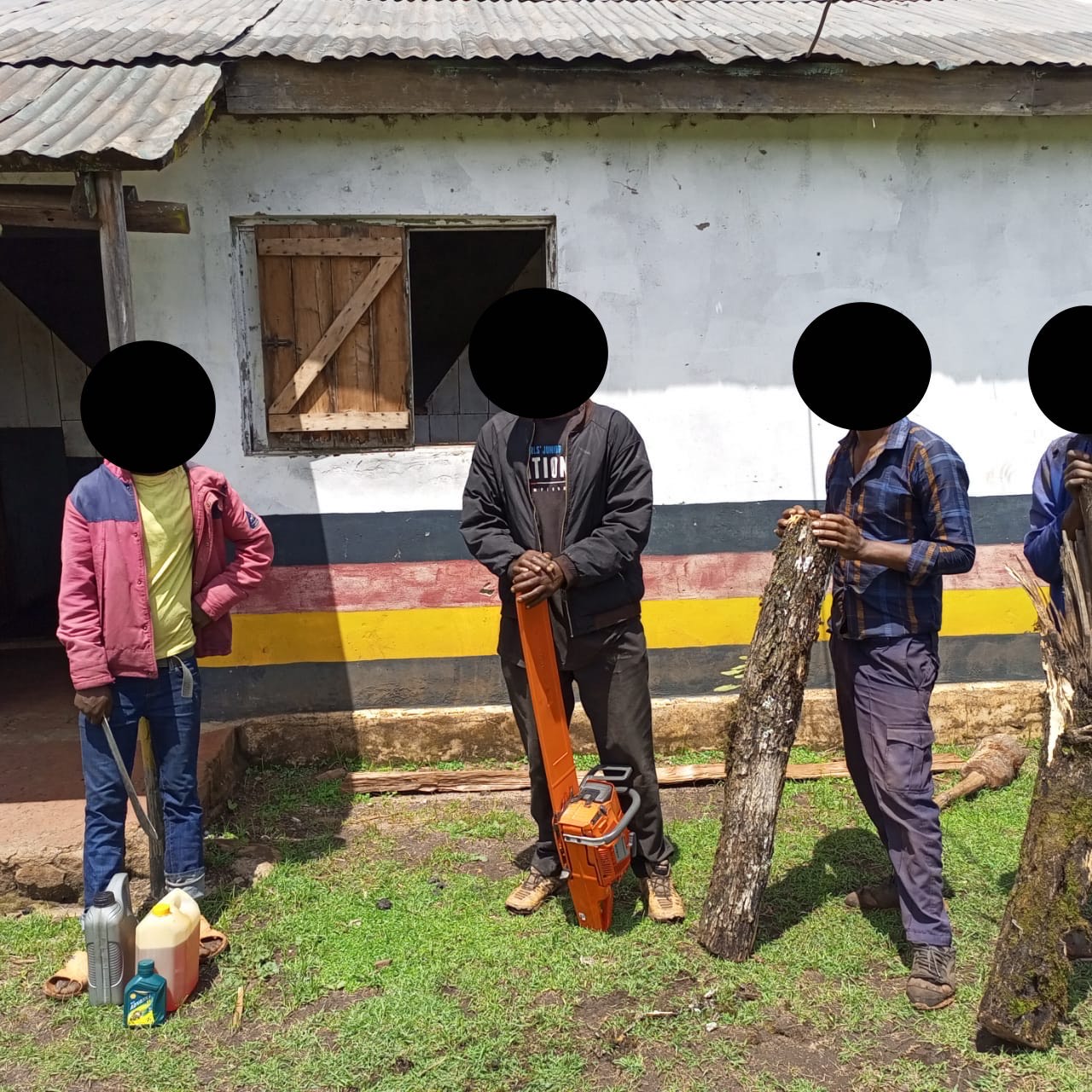
In total during the month of March, MEP rangers alongside government partners arrested 25 habitat destruction suspects, confiscated two power saws, 306 pieces of timber, eight posts, 17 bags of charcoal and destroyed 22 kilns. They also removed one snare and mitigated a total of 12 conflict incidents.
MEP rangers also assisted KWS and SWT with several wildlife treatments in March. As their name suggests, the MEP mobile ranger team is constantly adapting to rapidly respond to any area of the Mara in need of more protection. In late March, they assisted our partners KWS Vet Dr. Ndambiri with the SWT Mara Mobile Vet Unit with two elephant treatments. The elephants had spear and arrow wounds on their legs, a common injury found on elephants that venture into community land bordering the protected conservancies. The MEP “Golf” ranger team partnered with rangers from the KWS, Narok County and the Anne K. Taylor Fund alongside the vet, Dr. Asuka from the Mara Triangle, to treat a zebra who had a snare injury. Wildlife snares are long strips of usually wire used to trap wildlife for bushmeat. As was the case with this zebra, even if the animal manages to evade the trap, the wire can continue to dig into its flesh once they’re ensnared. The zebra was treated and sent along the way to hopefully make a full recovery.
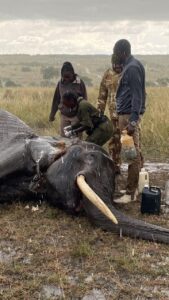 On March 14, SWT requested assistance from MEP to treat an elephant with three wounds in need of immediate attention. The MEP long-term monitoring (LTM) team joined the SWT Mobile Vet Unit and KWS Vet Dr. Mukami in the Maasai Mara National Reserve for the operation and it was pouring rain throughout the treatment adding a level of difficulty. The female elephant, identified by MEP as individual 918, had three arrow wounds from human-elephant conflict and the team got to work on treating her. Soon, she was back on her feet and on her way to healing and the team was heading back to HQ to dry off.
On March 14, SWT requested assistance from MEP to treat an elephant with three wounds in need of immediate attention. The MEP long-term monitoring (LTM) team joined the SWT Mobile Vet Unit and KWS Vet Dr. Mukami in the Maasai Mara National Reserve for the operation and it was pouring rain throughout the treatment adding a level of difficulty. The female elephant, identified by MEP as individual 918, had three arrow wounds from human-elephant conflict and the team got to work on treating her. Soon, she was back on her feet and on her way to healing and the team was heading back to HQ to dry off.

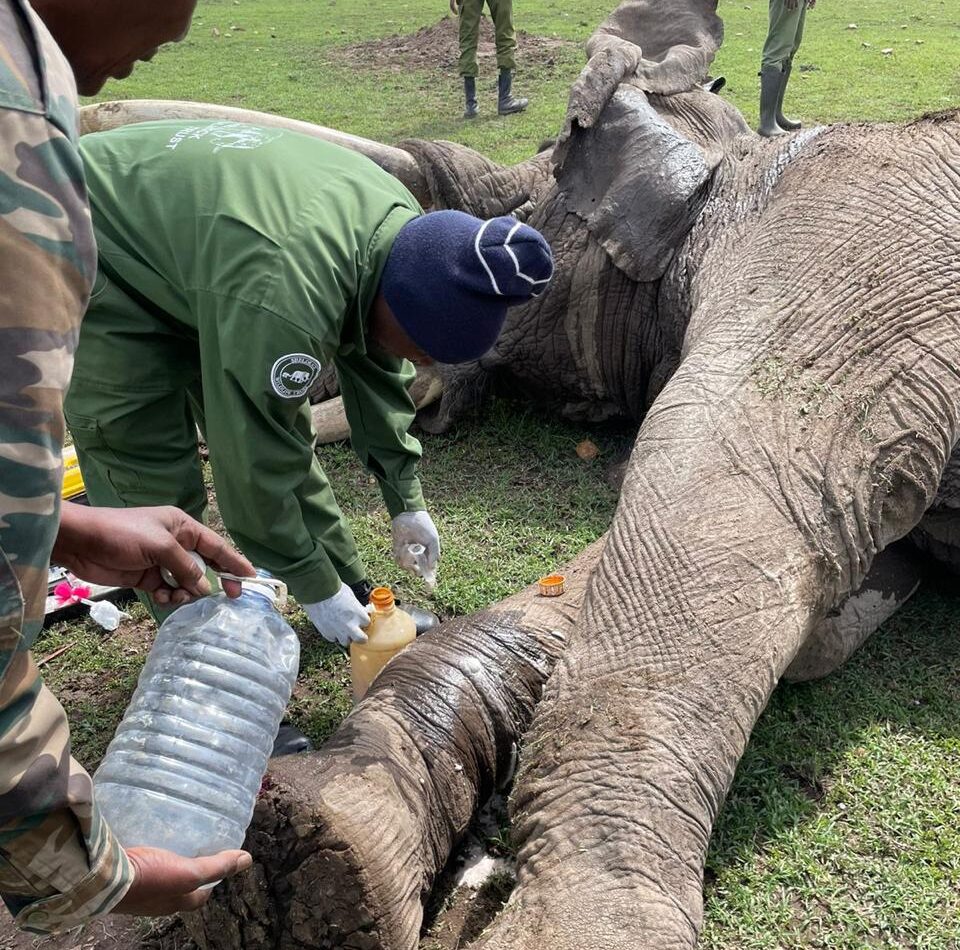



The MEP helicopter was a critical tool during the three elephant collaring operations that took place in March. On March 17, MEP pulled together a large airborne operation to collar a bull elephant named “Isiah” in the Loita Forest. Tracking Isiah’s movements will allow KWS, WRTI and MEP to increase protection for the forest and better understand the connectivity between the forest and other important elephant habitats. We are grateful to the Royal African Foundation supporters for making the protection of this bull for three years possible. He’s named after a beloved employee gone too soon. We were grateful to be joined by wildlife photographer Gurcharan Roopra to capture the collaring operation.
WRTI, KWS and MEP not only collar elephants important to understanding movement patterns, but also in response to conflict. In March, KWS requested MEP collar a rogue bull elephant who was breaking out of the electric fence surrounding the Shimba Hills National Reserve and going into bordering farms on a daily basis. On March 3, MEP successfully collared the bull alongside KWS Vet Dr. Rono using the MEP helicopter to better react to conflict. We also established a geo-fence (a virtual fence barrier) around the Reserve boundary so that the rangers on the ground will be able to react in real time when the bull breaks the fence to push him back into the park. The rangers will also be able to see from the mobile app when he starts staging behavior near the fence and intervene before he breaks it. Finally, on March 28, KWS, WRTI and MEP re-collared bull elephant “Lolotoo”. His movements around the Marmanet Forest bring him into contact with communities. After being collared, Lolotoo moved inside the forest and remains with his herd of 20. This herd make regular visits to the Kiribot / Waseges River and then back to the forest. The KWS and MEP scouts are using Lolotoo’s movement data to respond and prevent conflict between his herd and the community.
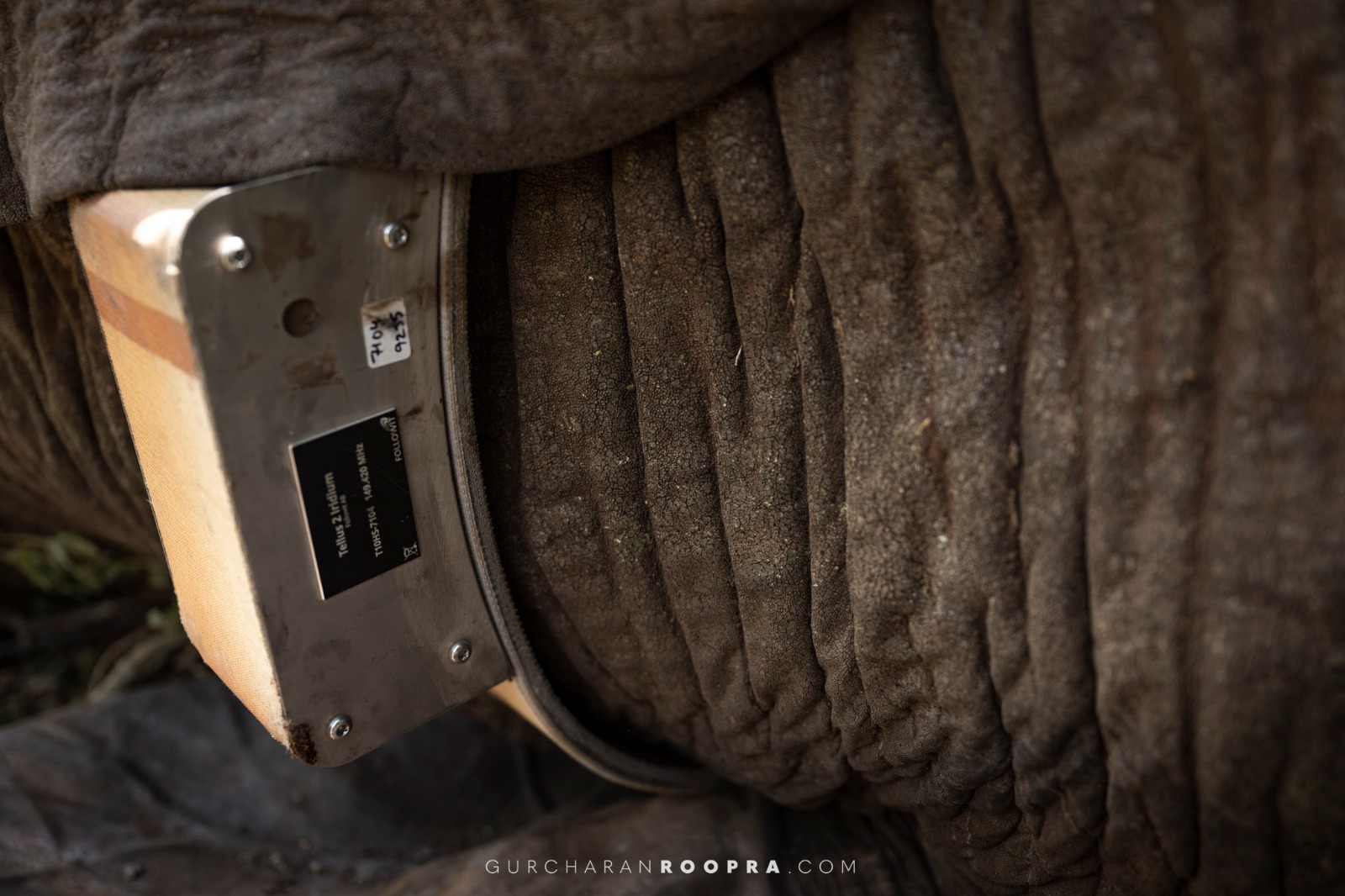
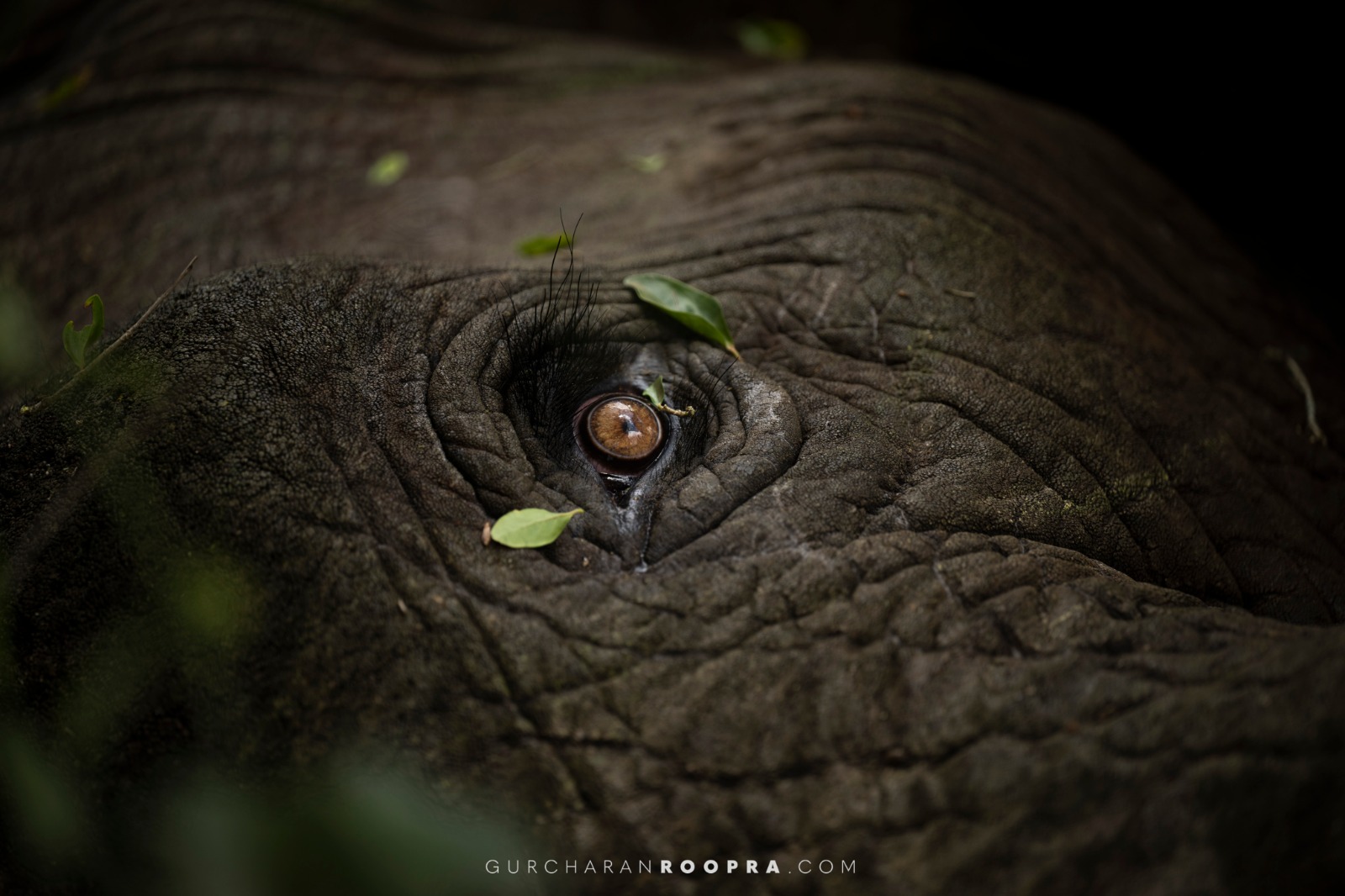
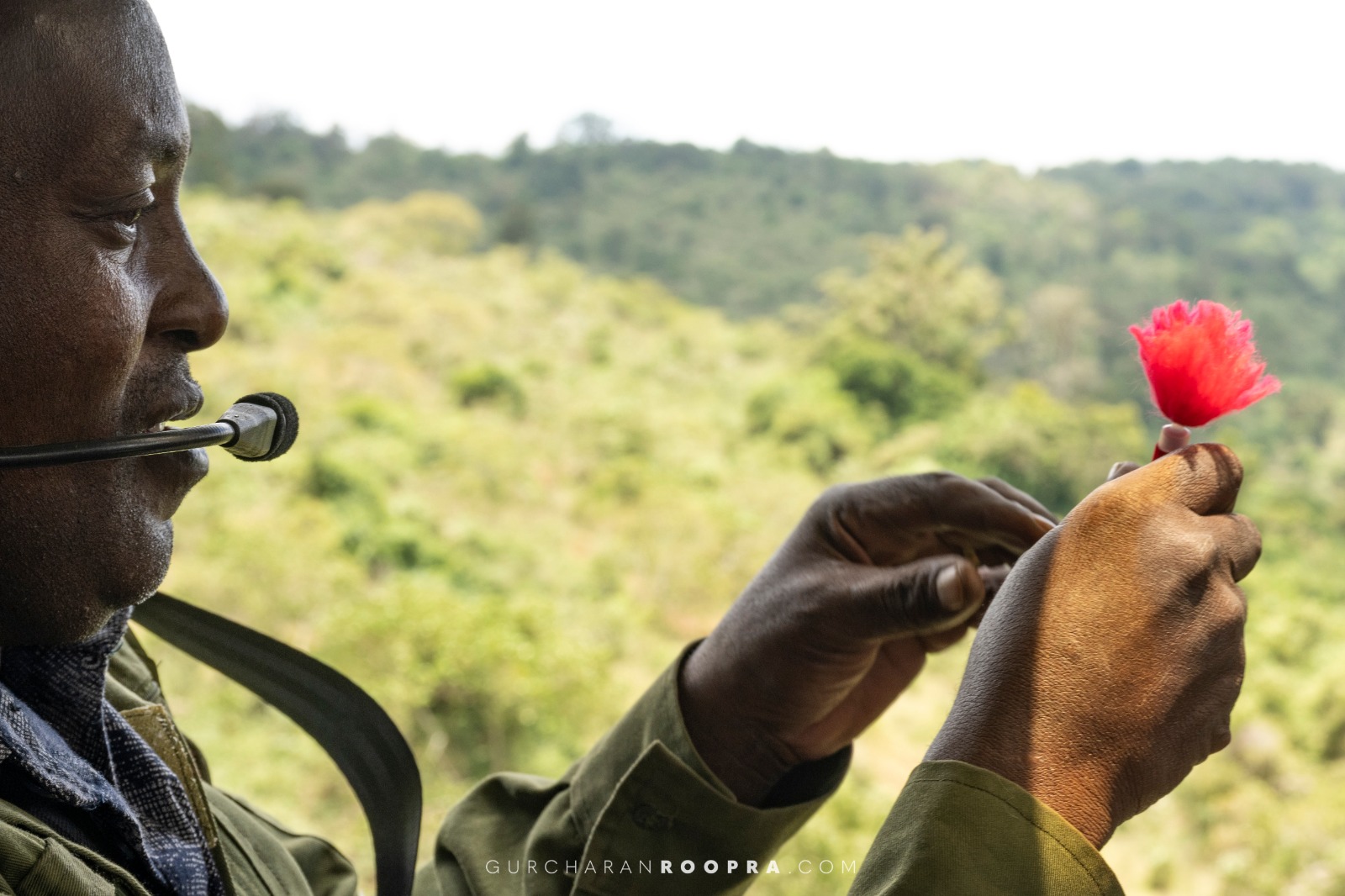
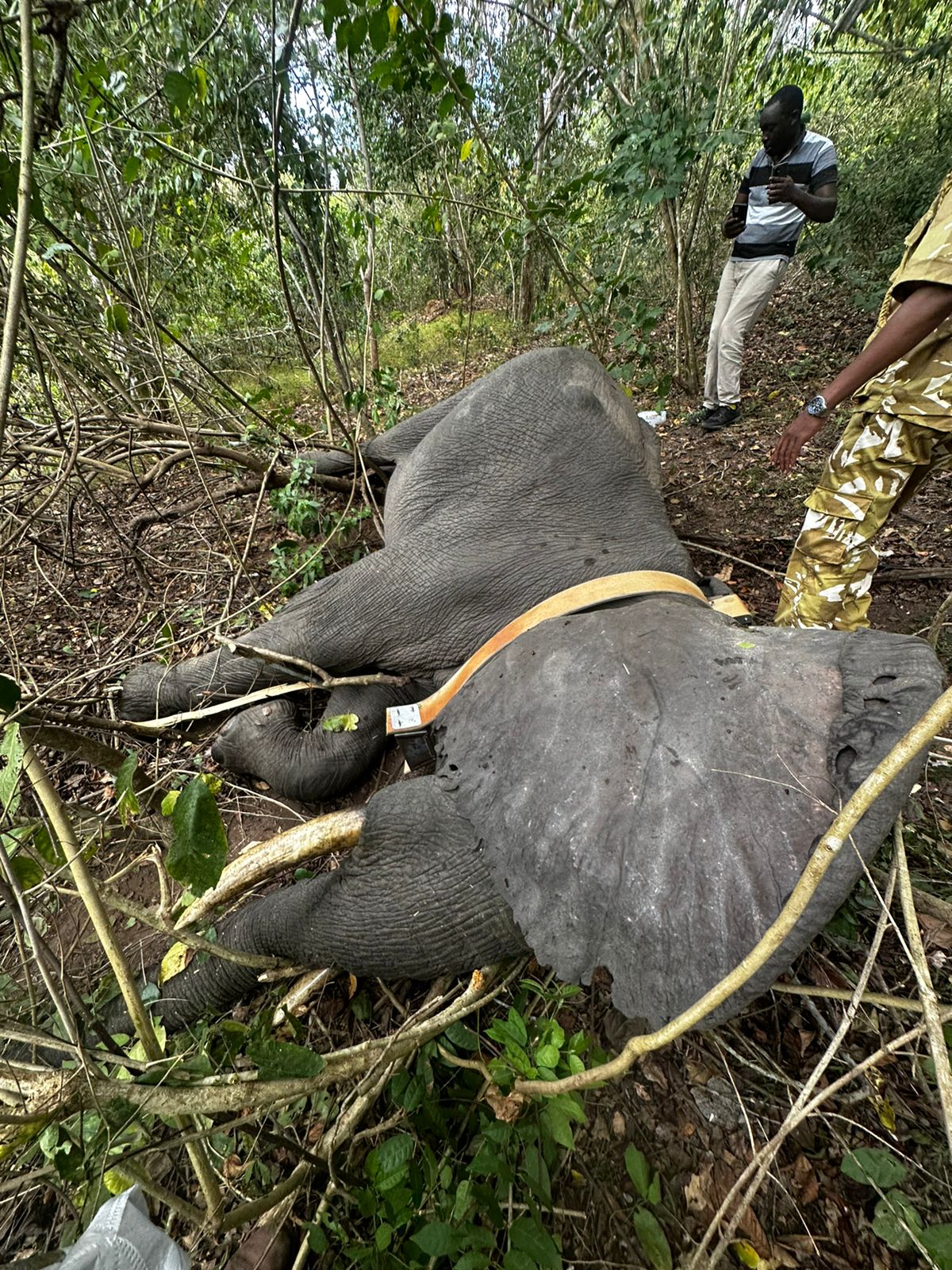
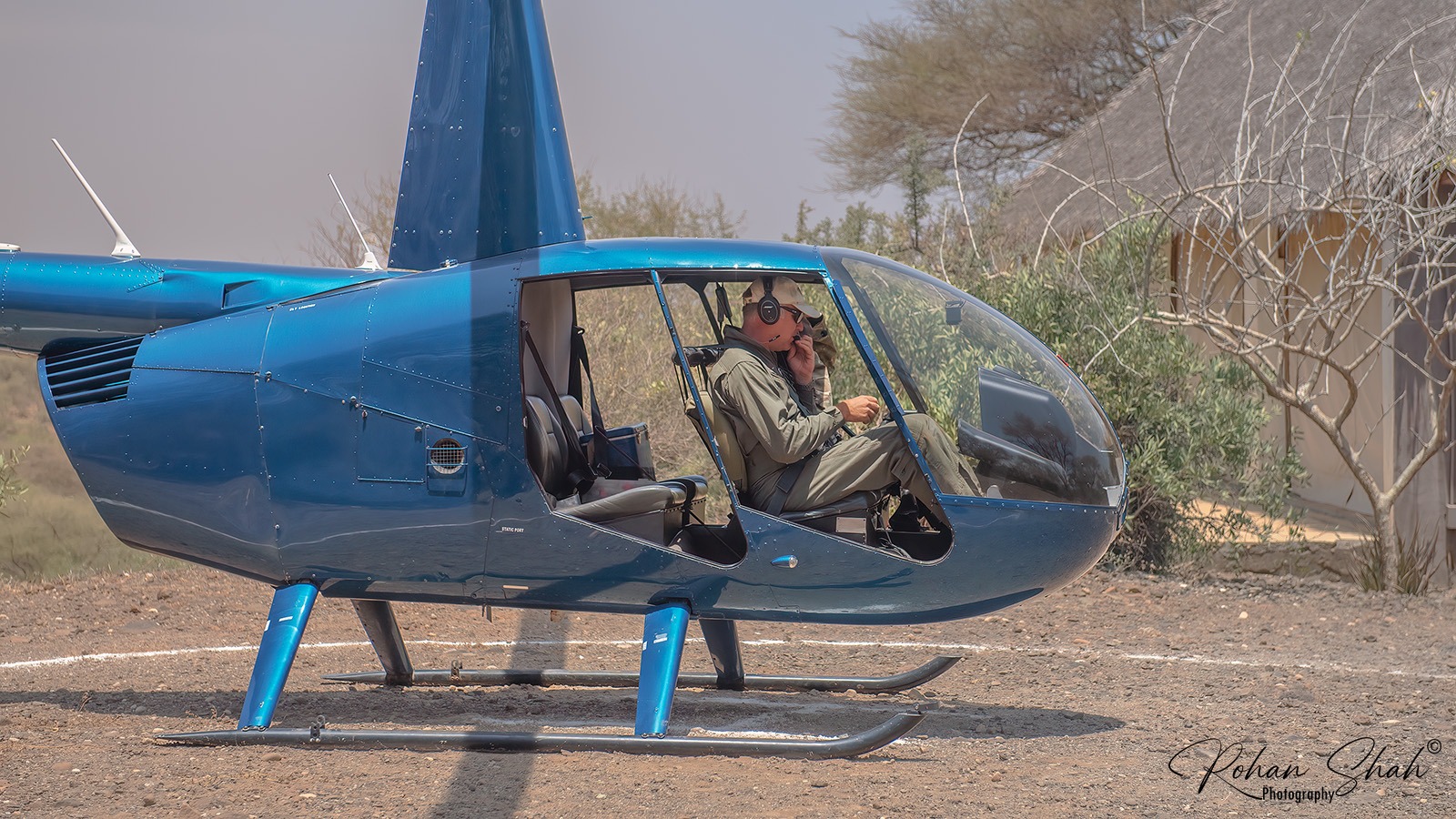
 The research department continued working on mapping roads and fences for the Landscape Dynamics database. They also finalized production of a map of the Greater Mara Ecosystem that is now being printed. The long-term monitoring team continued their identification efforts in the Mara Triangle, and Lemek and Mara North conservancies. On the Co-Existence Farm, the month was characterized with high level of continuous rainfall. They introduced five new crops (aloe vera, moringa, thyme, French lavender and yams) that replaced five other crops (beans, peas, coriander, potatoes and carrots) that have been predated and re-planted over five times. They also planted 60 trees of avocado along the farm, which is believed to have a low predation level by elephants. The team had an opportunity to attend a soap training activity organized by The Maa Trust’s community youth enterprise. The Farm workers did not only learn how to make organic, medicinal soap, but also the firsthand use and importance of essential oil crops, which at this stage have a low predation rate at the farm.
The research department continued working on mapping roads and fences for the Landscape Dynamics database. They also finalized production of a map of the Greater Mara Ecosystem that is now being printed. The long-term monitoring team continued their identification efforts in the Mara Triangle, and Lemek and Mara North conservancies. On the Co-Existence Farm, the month was characterized with high level of continuous rainfall. They introduced five new crops (aloe vera, moringa, thyme, French lavender and yams) that replaced five other crops (beans, peas, coriander, potatoes and carrots) that have been predated and re-planted over five times. They also planted 60 trees of avocado along the farm, which is believed to have a low predation level by elephants. The team had an opportunity to attend a soap training activity organized by The Maa Trust’s community youth enterprise. The Farm workers did not only learn how to make organic, medicinal soap, but also the firsthand use and importance of essential oil crops, which at this stage have a low predation rate at the farm.




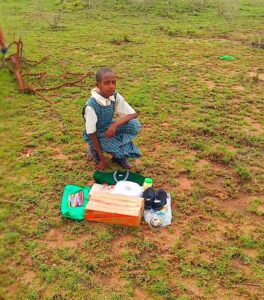 Finally, an uplifting story to end the MEP Monthly Report March 2023. In 2017, a young girl named Sheema was critically injured by a rouge elephant. MEP’s community rangers responded immediately and using the helicopter we were able to get her to the hospital where she received treatment and made a full recovery. MEP has stayed in touch and provided for her school fees yearly. Now, Sheema is 12 years old and attending Kishermoruak Primary School. She recently sent a photograph with her school supplies and uniform; all provide for by MEP.
Finally, an uplifting story to end the MEP Monthly Report March 2023. In 2017, a young girl named Sheema was critically injured by a rouge elephant. MEP’s community rangers responded immediately and using the helicopter we were able to get her to the hospital where she received treatment and made a full recovery. MEP has stayed in touch and provided for her school fees yearly. Now, Sheema is 12 years old and attending Kishermoruak Primary School. She recently sent a photograph with her school supplies and uniform; all provide for by MEP.
